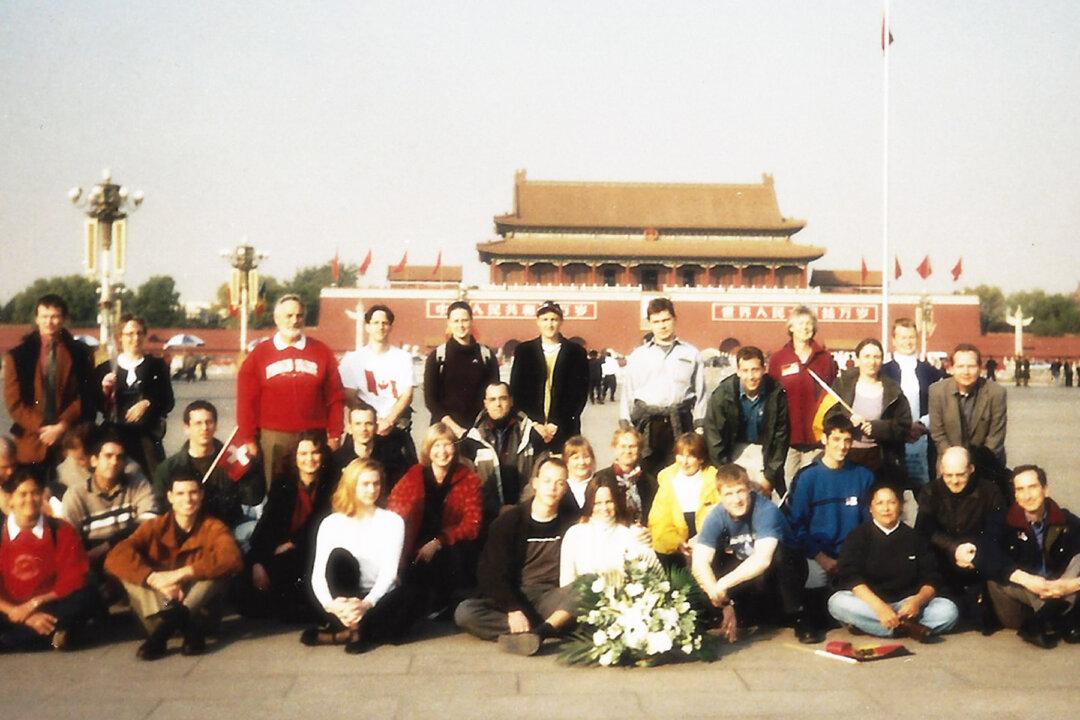Thirty-six Westerners from 12 countries quietly appeared in Tiananmen Square—the symbolic heart of China—with a simple message that shocked all those at the square the fateful day of Nov. 20, 2001. Their unprecedented protest soon made international headlines.
After group photos, most of the 36 Westerners from Europe, Australia, and North America sat down to meditate. Surprisingly, this was the courageous action that astounded many Chinese onlookers on that day, and it was their only crime that led to their arrest.






